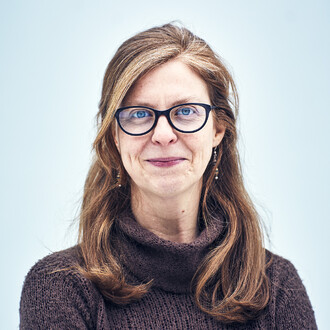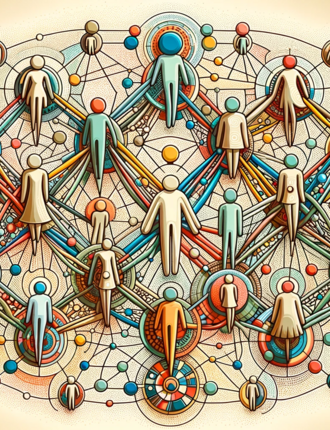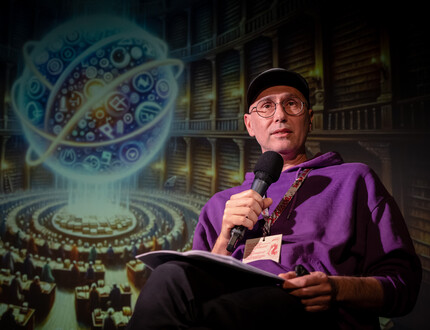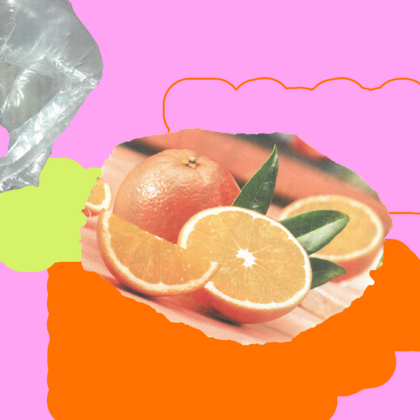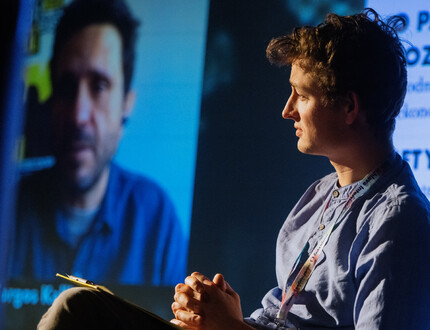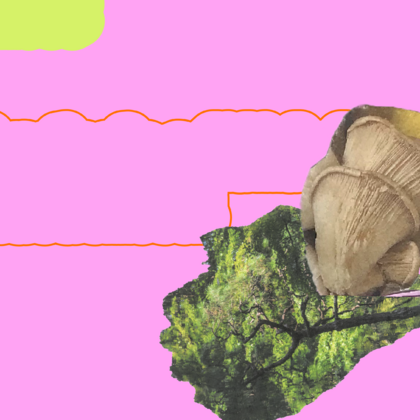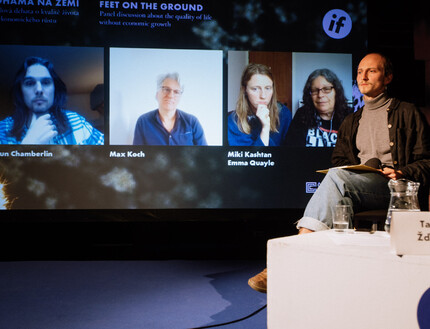How should we transform our relationships for the future? This is a very general question, so I have interpreted the “we” to mean those of us who are caught up in the global profit-driven economy. From this starting point, I would say that we need to transform our relationships on four different levels: our relationship with ourselves, with our communities, with the wider human world, and the rest of nature.
Most of us live in societies that prioritize the economy in very important ways. Countries measure their success and progress largely in economic terms; for instance, to what extent they have industrialized and how big their Gross Domestic Product is. Policy goals are often articulated in economic terms, like creating jobs and economic growth. Education systems are largely oriented around ensuring that children learn the kinds of skills and knowledge they will need to find a job. Even arguments to save lives and protect ecosystems are often made in economic terms. Think, for instance, of how often the argument to protect a forest or to provide healthcare to low-income communities is framed in terms of financial costs and benefits; so much money will be saved if we take these actions. But don’t these people have the right to a healthy life, regardless of whether it saves the government money? Don’t the deer, squirrels, and trees in the forest have the right to exist, even if it doesn’t add financial value to the accounting books?
The vicious circle of stress and consumerism
This dominance of the economy has a profound effect on how we relate to ourselves, the people around us, and the rest of the world (including other species). From a very young age, we are encouraged to see ourselves as consumers, to express ourselves through our consumption and to form an identity around the things we own and our favorite brands. Shopping is considered a normal pastime. We have learned to form friendships and relationships around these aspects of our identity. Think, for instance, of groups of friends who all wear the same brand of jeans or shoes, or people who socialize because they own the same kind of car. This can lead to superficial and judgmental relationships that don’t offer the kind of support and compassion that we need from our relationships. The superficiality of seeing ourselves and those around us as consumers leads to a lack of the deeper kinds of connection we need. It can even affect familial relationships; for example, when parents sacrifice time with their kids in order to work and earn more money. This focus on the economy throws us into a vicious cycle of stress, loneliness, and consumerism. In these societies, we often feel quite isolated and, in order to feel better, many people medicate themselves with shopping, work, video games, porn, drugs, alcohol and other addictions. I will go out on a limb to posit that rising rates of obesity and suicide are also related to the fact that our societies prioritize money and consumption over the health of people and the planet.
When we zoom out a bit more, we can see how the dominance of the economy has also shaped the way we relate to people across the world. The massive colonization, genocide, and enslavement of people around the world by Western powers from the 1400s through the mid-1900s were economic projects. These horrendous acts were a means to gain control of people and resources. The effects of the era of open slavery and colonization are still playing out today. Many formerly colonized countries and communities are caught in poverty traps and labeled by mainstream narratives as “undeveloped”, “developing”, “third world” and even “backwards”. In more recent decades, they have been coerced by the most powerful rich countries of the world into unsustainable levels of debt, which is part of why the Global North still receives more wealth from the Global South every year than vice versa. This is astonishing, given the fact that the Global North became so rich and powerful exactly because they colonized, enslaved, exterminated, and exploited people from the Global South.
In order to address these crises, we must transform our worldview away from seeing everything as separate entities, to seeing everything and everyone as interconnected.
Crucially, these acts have largely been justified by a Western worldview that sees the world as being composed of separate phenomena (i.e., separate individuals, separate communities, and humans and nature as separate). The powers who were conquering and dominating typically saw their colonies and slaves as “others”, who were less human than themselves. Likewise, the first conquistadors and industrialists saw that nature was something very different and very separate from themselves and that it was there to be conquered and transformed by humans. In fact, many people even see today’s global inequality as separate from this history of Western colonialism and exploitation. Nowadays, we can also see this separation-based worldview in the way we talk about “natural resources” and “natural capital”; nature is just a resource for businesses to convert to products. People are also routinely treated as resources and capital. The prioritization of wealth for some at the cost of everyone and everything else has generated the crises of the 21st century: growing levels of inequality, the climate crisis, and biodiversity loss. However, because everything really is interconnected, these crises threaten the very fabric of our society and the biophysical basis on which our existence depends, even the wealthiest of us.
In order to address these crises, we must transform our worldview away from seeing everything as separate entities, to seeing everything and everyone as interconnected. This includes seeing how the present is integrally connected to the past and the future.
We need to fall in love again with ourselves and all of life.
Yes, each of us is a unique individual and each community is unique, but we are all interconnected with the wider web of life. If we act from this interconnected worldview, we will have very different relationships. From this perspective, it is easy to see that we need to protect other species and ecosystems, not because it will make us money or save us money, but because they form the basis for our own continued thriving and they also have a right to life. We need to acknowledge that if others in my community are not doing well, then I can’t be completely well either, and vice versa. Therefore, we need to receive and offer others deep compassion, care, and support. We need to offer ourselves that same compassion, care, and understanding; not as a consumer, but as a divine being who is participating in the miracle of Life on Earth. We need to fall in love again with ourselves and all of life. It’s the same kind of love for self and the world that small children naturally have before we socialize them out of it. Aside from helping us avert the impending social and ecological catastrophes, our lives are so much richer when we appreciate what really makes life worth living –being part of something much bigger than our individual selves.
Inequality as a systemic feature of the for-profit economy
Yet, it’s important to note that this is a systemic problem. It’s not a random coincidence or mistake that the economy has come to dominate our lives. This is a natural outcome of a profit-driven economy. As businesses and their owners seek to make more money for themselves and compete with others for profit, the system tends to expand, to every corner of the world and also to every part of our lives. There are inherently high levels of inequality in a profit-driven economy, and that inequality makes people feel even more of a need to dedicate more of their lives to working and consuming (in order to try to associate themselves with the richer classes). This inequality is a systemic feature of a for-profit economy because business owners tend to accumulate wealth, in order to get rich, and workers’ wages tend to be suppressed so that businesses can deliver more profit to their investors. Furthermore, when companies push consumers to buy evermore products that they don’t need, again in order to deliver profit to investors, it takes a heavy toll on the environment.
So, yes, we each need to individually change our worldviews and relationships with ourselves, each other, and the rest of nature. But we also need to come together to change the political and economic systems around us to align with this interconnected worldview, so that we are not constantly under pressure to put the economy first; to treat ourselves and each other as consumers and to treat the incredible ecosystems of this planet as a bundle of resources and capital.
This means that we need to work together to move away from the for-profit economy and strengthen existing alternatives that are healthier and more enjoyable. These include things like sharing and swapping networks, not-for-profit businesses, community-owned renewable energy cooperatives, and community supported agriculture. In addition to strengthening alternatives to the for-profit economy in your community, you can join a social movement and push for change. Six key policies to collectively push for, include: 1) changing policy goals from focusing on economic growth and profitability to focus directly on human and environmental health; 2) withdrawing subsidies and tax breaks for large for-profit corporations; 3) supporting and building up not-for-profit businesses and markets (e.g., through seed funding, enterprise incubators, and public procurement policies); 4) initiating a massive redistribution of wealth from the richest communities to the poorest (including reparations for colonization and slavery); 5) shortening the work week; and 6) ensuring universal access to basic services like food, healthcare, and education (to be provided only by governmental and not-for-profit entities).
The text was originally published in the 2022 Ji.hlava IDFF festival book.
